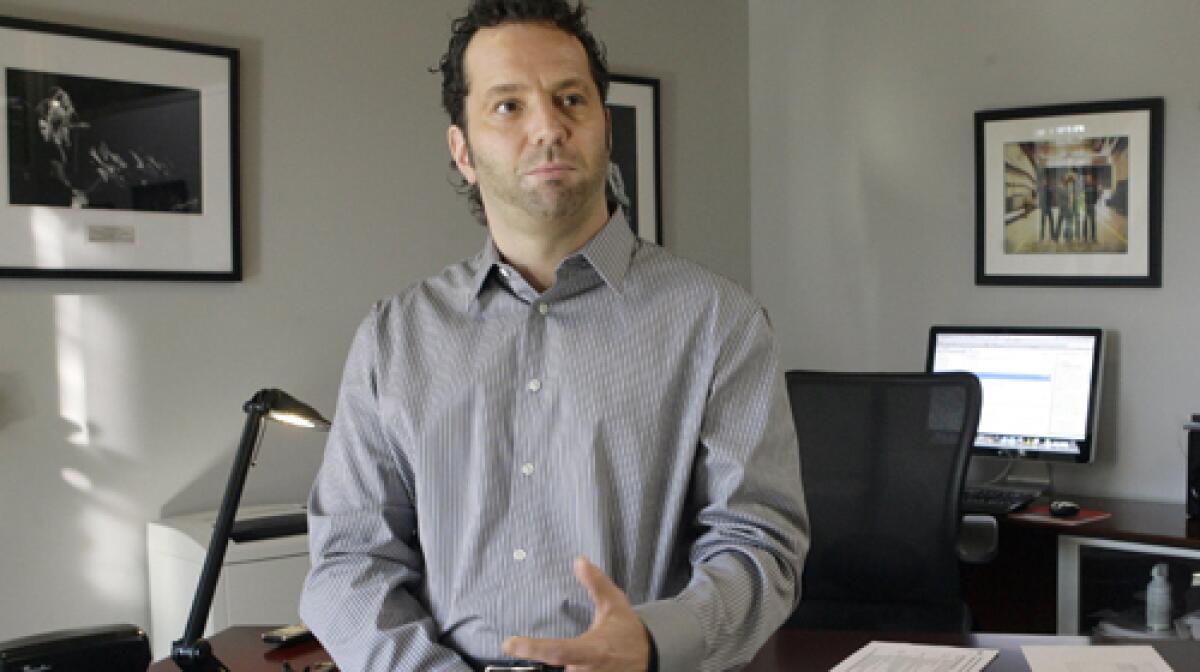Ticketmaster, Live Nation make case for merger

- Share via
One of the biggest challenges facing the architects of the Ticketmaster- Live Nation merger is making a case that the union can benefit fans and not just the companies’ stockholders.
They’ll have to argue that point to the Justice Department, which on Wednesday announced it will conduct an investigation to make sure the merger of the world’s largest ticket seller with the biggest concert promoter and facility operator doesn’t result in an illegal monopoly of the concert business. But they’ll also have to persuade those ticket-buying fans to whom Ticketmaster represents one of the evils of the modern world.
“Calling the new company Live Nation Entertainment is a big statement,” Live Nation Chief Executive and President Michael Rapino said in an interview Tuesday. “Let’s make sure we send a strong message from the first investor call. . . . There’s no way around it, we’ve got to build a better mousetrap to compete in today’s times.”
Ticketmaster Entertainment Chief Executive Irving Azoff draws a comparison with efforts by the federal government to address the national economic crisis.
“The government is saying, ‘If our economic stimulus plan works, this is what will happen,’ ” he said in a separate interview. “If our plan happens . . . it can, should and will result in lower ticket prices in the primary market. If that plan fails to come to pass, artists, consumers and the industry will not be the better for it.”
Azoff, whose Front Line Management stable of superstar acts is part of the new company, goes so far as to say that the worst thing that can happen for musicians and fans is for the two companies to do nothing.
“The system is broken,” Azoff said. “This is about being in the music business -- not just the record business, not just touring, not just ticketing. With the almost complete collapse of the ability to monetize recorded music, we think this model will allow artists to control their fate along several product lines within the music business.”
The executives spoke of their industry’s failure to keep up with the technological changes that have radically reshaped the music landscape.
“The first question is, if we don’t do something, where will the innovation come from?” Rapino said. “I’m not saying I have four silver bullets that will make everybody happy. But the model has got to change.”
As things stand, 40% of concert tickets on average go unsold, the executives noted.
“We’re not looking to gouge the public with higher ticket prices,” Azoff said. “We want to sell more tickets and have the full dollars [from sold-out shows] available to distribute.”
Added Rapino: “In my business, the cheaper the ticket price the better. I’d love for more consumers to walk into an amphitheater, park, have a beer and eat a hot dog. There’s no advantage to me to have anything but sold-out shows.”
Both executives want to explore new methods to keep tickets in the hands of fans rather than scalpers. Airline tickets, for example, cannot be resold. But, noted one concert industry veteran, “the airline business is a regulated industry; ours is not.”
For AC/DC’s recent concert at the Forum in Inglewood, Ticketmaster tried a ticket-less system in which fans got into the arena not with a ticket but by swiping the ID they used to buy the ticket.
Azoff and Rapino speak of the new company’s giving them greater flexibility to allow consumers to create customized packages with whatever products or services they want from a given artist: concert tickets, merchandise, music downloads, ring tones, special access at concert sound checks or meet-and-greet parties.
It’s not out of the realm of possibility that some of these ideas might pay off for fans.
“There are obvious synergies between Ticketmaster and Live Nation,” said Alan Krueger, an economics professor at Princeton University who has done extensive research on the concert industry, in an e-mail. “I think a combined company could be much more innovative in distributing music and pricing tickets.
“They could combine digital downloads of music (both live and recorded) with concert ticket promotion,” Krueger said. “They could also use the vast market information that Ticketmaster acquires to target locations for concerts and the number of concerts (as Bruce Springsteen did in New Jersey on his last tour). This would be a blow to scalpers but probably help fans who want to buy tickets in the primary market.”
More to Read
The biggest entertainment stories
Get our big stories about Hollywood, film, television, music, arts, culture and more right in your inbox as soon as they publish.
You may occasionally receive promotional content from the Los Angeles Times.










